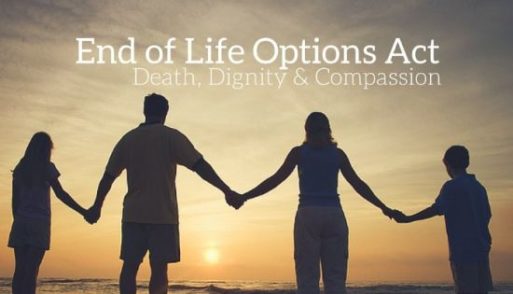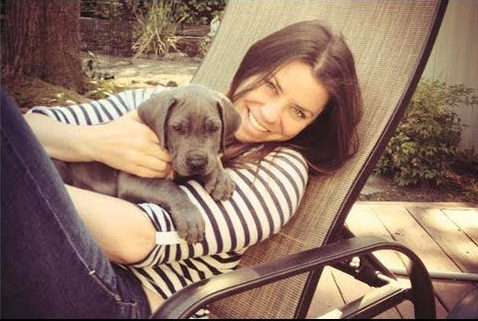In a move that shocked many terminally ill Californians, Superior Court Judge Daniel Ottolio overturned the state’s End of Life Options Act on Tuesday, May 15. Compassion & Choices, the patient advocacy group that lobbied heavily for the law’s passage, immediately filed a motion with the Appellate Court to vacate the judgement, but that request was denied. The appeals court did, however, schedule a separate hearing for June 29, 2018, at which California Attorney General Xavier Becerra will attempt to defend the law.

Credit: santabarbaraepc.org
Ottolio’s decision was the result of a lawsuit filed by Life Legal Defense Foundation and the American Academy of Medical Ethics on June 9, 2016, the day the law took effect. The plaintiffs in the case argued that the special legislative session called by Gov. Jerry Brown in October 2015, at which the measure was approved, was intended to address other aspects of healthcare, not the End of Life Options Act.
Judge Ottolio agreed.
However, John C. Kappos, an attorney who worked with Compassion & Choices on getting the legislation passed, believes the judge’s ruling is based on a too narrow interpretation of Gov. Brown’s proclamation and should be overturned on appeal. Said Kappos, “In a vote separate from the vote approving the End of Life Option Act, the Assembly specifically rejected the argument that Plaintiffs make in their complaint and found that the law pertained to health care.”
Nevertheless, the End of Life Options Act is now on hold until at least the end of June, leaving many patients and their physicians confused about what to do next. According to the California Medical Association, the judgement not only invalidates the act, but leaves doctors open to criminal prosecution if they continue to participate in medical aid in dying in any way.
Lives Turned Upside Down
The petitioners in the appeal filed by Attorney General Becerra are two terminally ill patients and a physician who has helped dying patients gain access to medication to end their lives. According to Compassion & Choices, their names are:

Matthew Fairchild
Credit: compassionandchoices.org
Matthew Fairchild, a 48-year-old man with terminal melanoma that has spread to his bones, lungs and brain.
Joan Nelson, an 82-year-old woman with a rare form of cancer known as leiomyosarcoma. Ms. Nelson already received a prescription for medical aid in dying, but she now fears repercussions (such as having her death labeled a suicide) if she decides to take the drugs.
Dr. Catherine Sonquist Forest, a clinical associate professor of family medicine at University of California at San Francisco Natividad in Salinas, California. Dr. Sonquist Forest has cared for more than a dozen patients who have pursued medical aid in dying since the End of Life Options Act took effect. In her petition to the court, she says the court’s action “has left me, my colleagues and patients reeling as we try to navigate end of life care.”
A Popular Law
The End of Life Options Act is popular among Californians, 76 percent of whom support medical aid in dying. During its first year on the books, over 500 terminally ill patients sought access to aid in dying drugs, according to Compassion & Choices estimates. (The actual number is likely higher, since Compassion & Choices is only aware of patients who contacted them for advice.) And according to a California Department of Health report, between June 9, 2016 and Dec. 31, 2016, 258 people started the aid-in-dying process with their doctors, and 191 were given a prescription for life-ending drugs. In all, 111, or just over 58 percent, died as a result of taking the drugs.

Brittany Maynard, whose choice to die with dignity in 2014 sparked the passage of the End of Life Options Act
Credit: cnn.com
What’s more, the dire predictions voiced by opponents of the End of Life Options Act (for example, that vulnerable populations will be coerced into ending their lives) have not come to pass. According to a March 2018 report published in JAMA Internal Medicine, the patients who are requesting aid in dying in California are strikingly similar to those in Oregon, which has offered death with dignity to terminally ill patients for 20 years. That is, they are mostly white and well-educated, with a high degree of social support. The majority (74 percent) have cancer, and nearly 60 percent are already receiving hospice and/or palliative care. And the reason they cite for choosing medical aid in dying is not unbearable physical pain, but “existential suffering, inability to enjoy life, and loss of autonomy,” say the authors of the report.
Sadly, overwhelming support for medical aid in dying and a law that has been working well for nearly two years proved insufficient to move the court to keep the law in effect until the appeal is heard. And so hundreds of Californians are now once again in limbo, wondering if they will have the option of medical aid in dying or if they face another long, protracted legal fight. Given that many of them have very little time left, I can only hope that common sense prevails, and the court will restore this just and compassionate law.
Addendum: On June 15, 2018, an appellate court granted a petition to stay the above judgement following an emergency appeal by Compassion & Choices on behalf of the above named petitioners. The ruling reinstates the End of Life Options Act, effective immediately. The appellate court’s decision will allow terminally ill Californians to seek medical aid in dying until the case is decided, likely many months from now.

 Judge Halts California’s End of Life Options Act
Judge Halts California’s End of Life Options Act


 “Other Side” Documentary Directed by Carter Oakley and Heather Hogan
“Other Side” Documentary Directed by Carter Oakley and Heather Hogan
















